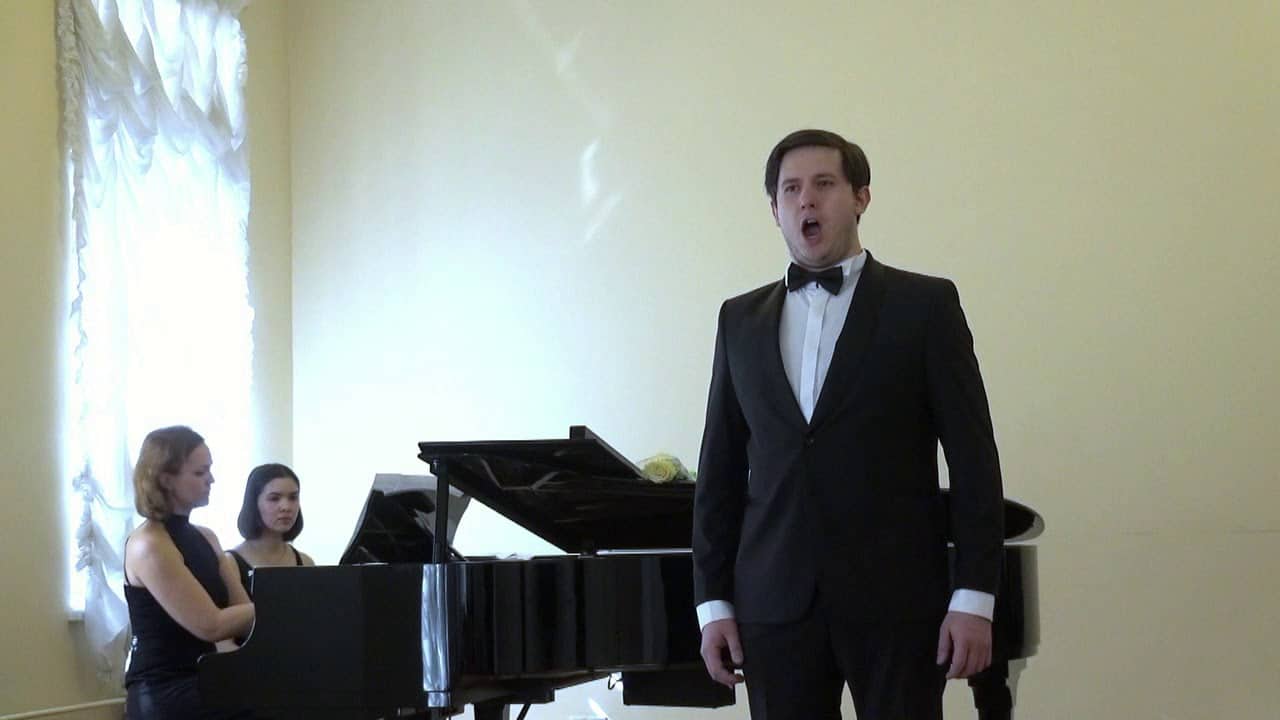Three Chopin contestants have competed three times before
NewsThis news item on the Chopin Competition website seems, to us, a bit absurd.
Thirty-four of the pianists competing in this year’s preliminary vied in the preliminary round of the 17th Competition in 2015.
That bit makes sense. But:
Three of them, Chi Ho Han, Airi Katada, and Mariko Nogami (pic), are here for the third time!
Why, if they have failed twice before?







They have had more years of study, practice, and experience – so why not try again?
And it’s a different jury this time around.
Maybe they have improved?
Maybe they have grown as musicians and would like to try again.
If they can make it in, then they have every right to compete.
I admire them for their fortitude and will be looking for a chance to hear them play.
Presumably in the hope they have improved since then!
Have you heard of the concept of improvement?!
Jeez, what a harsh statement Norman – they’ve simply (1) improved and (2), knowing how… particular… preselection committees can be, they’ve maybe entered the right circles, had the right endorsements etc.
Remember everyone : good guidance and practice makes talent. And you can keep improving until you’re dead.
Cheers.
I believe it’s an overstatement to say that they “failed” just because they didn’t outright win. On the contrary, the fact that they’ve been admitted to the competition again would indicate to me that they’re still thought to have artistic merit.
They may have improved since the last time.
The field of competitors will be different this time.
The judges may be different this time, and, as this website has regularly observed concerning many different types of musical competitions, the conclusions (or, as the case may be, the caprices) of the judges are the main determinents of a competition’s outcome. Different judges equals a potentially different result.
I think you meant perseverance.
They are stubborn is the least one can say about them.
Exposure? Experience? Networking?
I see this quite differently. In the music industry, visibility breeds familiarity. It actually does not matter if they did not progress to win in earlier competitions. People know who they are, and follow their musical evolution over the years. I think it’s great. It isn’t new either. They also develop a cheering fan base, and these followers become fans who support them enthusiastically, if it happens to be. Good luck to them. Whether they win or not, they are developing an audience. The audience to buy tickets to attend their performances, and/or purchase their recordings.
Well, if I’m not mistaken, Victor Hugo was only admitted to the French Academy at his fourth try.
And in the end, he was one of the few buried at the Panthèon immediately after his death.
They may play better this time, yes; but if you are really talented and have really improved after 2010, you must be succeeding already more or less. You don’t need to appear in a competition. It is waste of time for active musicians, it has nothing to do with artistic development.
The fact that they want and are still struggling to get such a prize after 10 years shows that they still don’t have enough success in their professional lives and need to make their career more impressive. I don’t think they have any significant potential. 10 years are too long enough for young and talented pianists.
Why not? Hope springs eternal! Plus, a competition is as much a festival as anything, and on this level, a celebration.
Competition is NOT a festival. If it were it would have been called that!! Competition is sport: win/lose, a festival is a fair, a show: no losers, no winners. Incomparable events, incomparable moods, incomparable atmosphere, incomparable tension and, last, but not least, incomparable audience!
Mitsuko Uchida entered the Leeds competition in 1972 and didn’t make the finals. She entered again in 1975 and got 2nd prize.
Ian Hobson got 4th prize at Leeds in 1978. He entered again in 1981 and got 1st prize.
Mistakes are an integral part of the competitions. It does not mean that Uchida ‘improved’ in 1975. She played for a different jury, under different circumstances and we still do not know which decision was more appropriate: 1972 or 1975!
smArtists do grow, you know, and this may be one of the exception cases. Do you wish to deprive an earnest, hard-working talent of the opportunity, even after so many delays, to show where he (she) is in the eternal struggle. Some of us do blossom late in life. Let us avoid the sarcasm please and maintain a positive approach.
Third time lucky?
They might win on the third attempt. That’s not against the rules, is it?
What a stupid remark…they “failed” twice before
I’ve noticed this trend in other music competitions, too and am concerned that allowing previously unsuccessful contestants to compete again may deprive other, genuinely talented musicians from participating. Who is organising this system? It seems that if the judges don’t arrive at the correct decision the first time they have to try again until they do. It makes me very uncomfortable.
In reply to those who say previously unsuccessful contestants will have improved through practise and perseverance, of course this is true; however we are talking of talent here which is inborn and cannot be acquired.
Do you think talent by itself is enough to ensure a successful career? I submit that other factors, like perseverance and a work ethic, might have some bearing on a person’s ultimate success. (Leaving out things like luck: I wonder how many of us would ever have heard of Ivo Pogorelich, if Martha Argerich hadn’t caused a furor at that Chopin competition 40 years ago. What if she’d thought he was just mannered and pretentious?)
Well in fact for the subsequent 15 years after the 1980 competition, Martha’s very publicized faith in Pogorelich proved justified. However, the ensuing decline & decay of Pogorelich’s playing from the late 90’s until now left Martha with egg on her face. A competition isn’t about selecting potential – it’s about rewarding the performances at the event – so that’s where Martha irresponsibly digressed from the other jury members. A quick view of the youtubes of Pogorelich’s performances from the 1980 competition demonstrates that the rot was already setting in: his playing was extremely affected and narcissistic – as if he were doing Chopin a favor by playing his music. His playing was about Pogorelich, period.
My point remains then: if Argerich hadn’t attracted attention to him, would he have had the career he had?
It occurs to me to wonder, though, if being eliminated would have actually been better for him in the long run. Clearly he had the talent, technique, charisma, etc.; but if he’d had to figure out why all this wasn’t enough to get him into the finals, maybe he would have looked for something deeper, and become a better artist. (I hate to say things like “better artist,” but you know what I mean.)
Ouch!
Many are [rightly] decrying the sentiment that previous “failures” to win the Chopin competition means a player should give up trying. But:
It’s interesting how many of us, our esteemed host among them, fulminate regularly about how competitions are stupid, pointless, corrupt, inept at choosing future successful performers, winning one is meaningless, etc. etc…. and then turn around and say these people who haven’t won one are failures.
Maybe complain about some Jewish pianists some time, instead of just Asians – and I’ll take you seriously.
Look, them trying again as evolved musicians and testing their progress is certainly one hell of a lot better than ungifted writers like you churning out pieces like the one you have written here with zero value to the world.
One will call it “persistence”, another “stubbornness”, “overestimated ambition” or something else….Considering that “Chopin” happens every 4 years, it makes little sense to spend 10-12 young, productive years of your life playing ONE composer!!! Indeed absurd and a very widely spread one.
Time to change to AI field.
It is a well-known fact that Chopin competition entrants learn and practice no repertoire other than Chopin for several years before each competition.
/eyeroll.
How dare you to say that ‘they have failed twice before’! Not winning is not the same to failing. They could have learnt a lot from those experiences and developed further.
Such a pejorative and unconstructive remark.
Make sure you really check your archive before even making a false statement, with your status as a respected critic and journalist. At least one of the three mentioned only entered twice, not to mention the growth he/she projected. Have you even heard any of them in live? I had. Was an experience more than words can describe. If you have never heard them in performances, please at least behave like a mature audience.
Success. Who are you to define success?